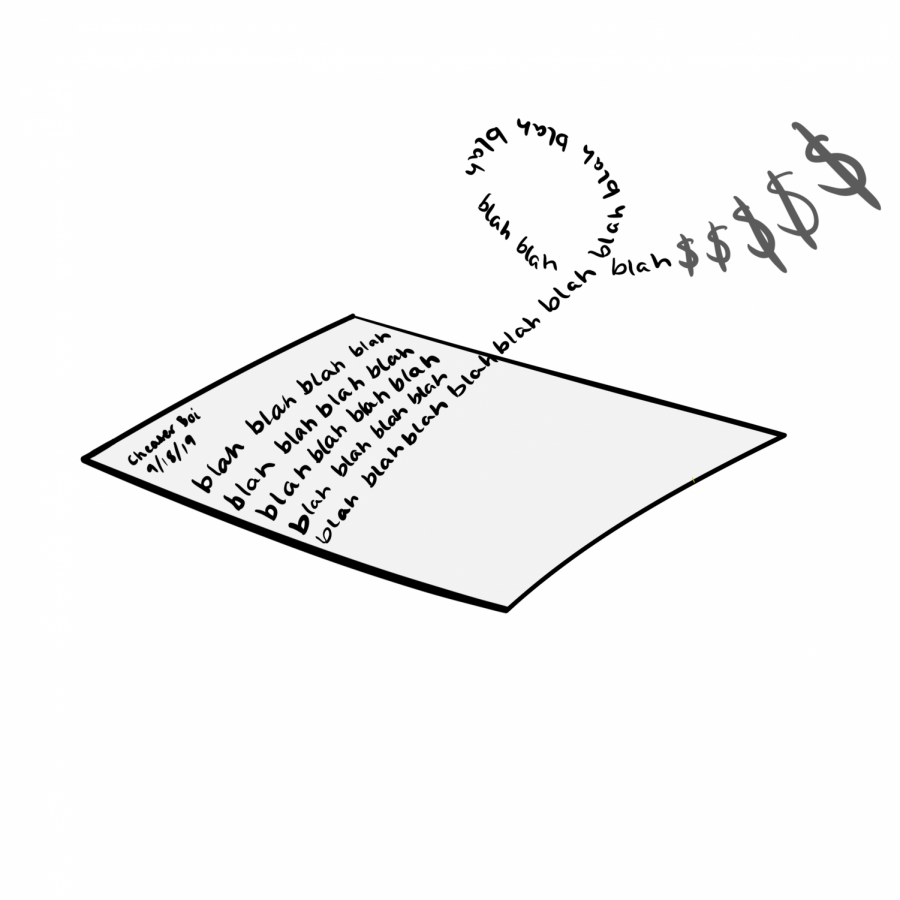The rich have really got the hang of professional plagiarism
September 27, 2019
In the recent New York Times article “Cheating, Inc.: How Writing Papers for American College Students Has Become a Lucrative Profession Overseas,” journalists Farah Stockman and Carlos Mureithi detail a growing trend of “essay-for-hire” services, which outsource the academic work of the Global West — typically to developing countries — in order to ensure a student receives high marks. While not illegal in many states, such practices seriously undermine academic integrity and are harder to identify than plagiarized work since the writing is original. With prices ranging from $15 to $30 a page, this sort of service is reserved for an increasing amount of privileged students in universities all throughout the first world.
Let’s be clear: companies like AceMyHomework and EssayShark engage in large-scale, market-based cheating, enabling those who can pay to pass classes without ever having to complete an assignment themselves; thus the service is disproportionately utilized by wealthy students, who can afford to build an entire academic reputation around this sort of deception. The people who agree to write students’ essays for money typically have degrees themselves and, when unable to find a job in their own country, resort to essay writing in order to ensure an income. To suggest these ghostwriters don’t have moral qualms about helping others plagiarize for money would be patently false — this sort of contract work simply makes the most economic sense for them. For Mary Mbugua, a professional essay-writer, the circumstances are fairly dire; “[Mbugua] graduated from her university in 2018 and has sent her resumé to dozens of employers. Lately she has been selling kitchen utensils,” wrote the New York Times.
But this is only the latest in a lengthy and well-documented history of academia’s privileging of the wealthy, including their superior access to expensive private universities, in-person tutors, and — if they didn’t try hard enough — fat bribes to the school of their choice. But what’s worse is that the world’s well-off face almost no repercussions for this sickening distortion of the education system. This is the implicit acceptance of the unfair advantages the wealthy have in education. Just last week, NPR reported that Felicity Huffman was sentenced to just two weeks in prison for allegedly paying to get her children into schools like the University of Southern California. Yet despite all this irrefutable evidence, there is no national conversation on how prejudiced the education system is against disadvantaged young people. There is no discussion on the world’s economic periphery, and how capitalism distorts access to education in favor of the rich, powerful and predominantly white. These are all conversations which need to be had, especially on our wealthy campus.
It should be asked: how can the United States and other Western nations lay claim to the most developed education systems in the world when that system is so easily corruptible and exploitable by the wealthiest among us? What kind of education system subsidizes the wealthy and undeserving students at the expense of a hard-working generation of students who do not have the same privileges as students at Western universities or with wealthy legacy families? These advantages are undeserved, and we should take a hard stance against such economic and cultural systems which favor social stratification in education. To ask that students with societal advantages do more, not less, should be our expectation when it comes to earning a better life.




















